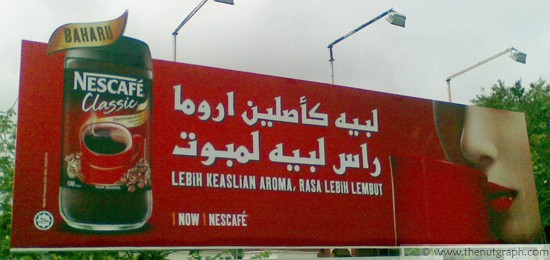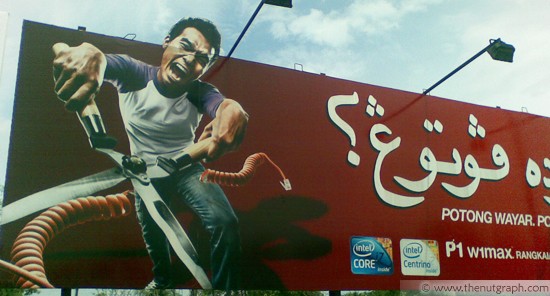(Malaysiakini)The family of the late Altantuya Shaariibuu may finally be able to see the dawn when their civil suit against the government, political analyst Abdul Razak Baginda, and her two convicted murderers, goes to court.
Altantuya's dad Setev Shaariibuu (right) told Malaysiakini that he has received confirmation from the Mongolian government that they would extend the RM70,000 to settle the security and legal costs needed for the case to be heard.
"I would like to thank the government of Mongolia which has accepted my request and made a humane decision for my family," Shaariibuu said in a statement via his lawyer Munkhsaruul Mijiddorj in Ulaanbaatar.
"Now, I am proud of my daughter, that she has a country called Mongolia," he added in the handwritten letter.
In March, Shah Alam High Court judge Zaleha Yusof slashed the quantum of security cost from RM1.25 million to RM60,000, after hearing an application from the family's Malaysian lawyer Karpal Singh.
She agreed to a security bond of RM30,000 each for the government and Abdul Razak, who is closely linked to Prime Minister Najib Abdul Razak. They had asked for RM1.25 million.
Azilah Hadri and Sirul Azhar - the two policemen convicted last April of Altantuya's (left) murder, did not request a security bond.
Shaariibuu must also fork out RM10,000 for lawyers' costs, but Karpal had said he will set up a fund and request all members of parliament to chip in with donations.
Thanks for the help
Meanwhile, Shaariibuu took the opportunity to thank the people who came to his assistance when he most needed it.
"These are our lawyer Karpal Singh, journalists, members of human rights organisations and the people of Malaysia," he added.
He was also referring to Malaysiakini readers who had pledged not only donate to a fund but raise the bond money for the family as well.
Shaariibuu, however, is still uncertain whether the money from the Mongolian government is a gift or a loan but said it was not a worry.
Earlier, Shaariibuu had lamented that he had tried to seek aid from the Mongolian Parliament, but failed.
Shaariibuu said his parliamentarians would extend the money to him only as a loan, and as he earns a meagre income of RM625 (or its equivalent US$188.542), he felt it would be difficult to repay it.
But all that had changed when Karpal (left) said he was willing to raise the money for Shaariibuu "at all cost".
The DAP national chairman added that in the event the Mongolian government did not come up with the money for the bond, then he would take the responsibility of raising the necessary funds.
"Mongolia and Malaysia will be existing for thousands and thousands years in the world," he said.
"Therefore, something more valuable than money would be when there is justice in both criminal and civil courts in Malaysia.
"When there is justice, people from two countries will respect each other and rise up for the case."
Altantuya's dad Setev Shaariibuu (right) told Malaysiakini that he has received confirmation from the Mongolian government that they would extend the RM70,000 to settle the security and legal costs needed for the case to be heard.
"I would like to thank the government of Mongolia which has accepted my request and made a humane decision for my family," Shaariibuu said in a statement via his lawyer Munkhsaruul Mijiddorj in Ulaanbaatar.
"Now, I am proud of my daughter, that she has a country called Mongolia," he added in the handwritten letter.
In March, Shah Alam High Court judge Zaleha Yusof slashed the quantum of security cost from RM1.25 million to RM60,000, after hearing an application from the family's Malaysian lawyer Karpal Singh.
She agreed to a security bond of RM30,000 each for the government and Abdul Razak, who is closely linked to Prime Minister Najib Abdul Razak. They had asked for RM1.25 million.
Azilah Hadri and Sirul Azhar - the two policemen convicted last April of Altantuya's (left) murder, did not request a security bond.
Shaariibuu must also fork out RM10,000 for lawyers' costs, but Karpal had said he will set up a fund and request all members of parliament to chip in with donations.
Thanks for the help
Meanwhile, Shaariibuu took the opportunity to thank the people who came to his assistance when he most needed it.
"These are our lawyer Karpal Singh, journalists, members of human rights organisations and the people of Malaysia," he added.
He was also referring to Malaysiakini readers who had pledged not only donate to a fund but raise the bond money for the family as well.
Shaariibuu, however, is still uncertain whether the money from the Mongolian government is a gift or a loan but said it was not a worry.
Earlier, Shaariibuu had lamented that he had tried to seek aid from the Mongolian Parliament, but failed.
Shaariibuu said his parliamentarians would extend the money to him only as a loan, and as he earns a meagre income of RM625 (or its equivalent US$188.542), he felt it would be difficult to repay it.
But all that had changed when Karpal (left) said he was willing to raise the money for Shaariibuu "at all cost".
The DAP national chairman added that in the event the Mongolian government did not come up with the money for the bond, then he would take the responsibility of raising the necessary funds.
"Mongolia and Malaysia will be existing for thousands and thousands years in the world," he said.
"Therefore, something more valuable than money would be when there is justice in both criminal and civil courts in Malaysia.
"When there is justice, people from two countries will respect each other and rise up for the case."














 By Hilary Chiew - Free Malaysia Today,
By Hilary Chiew - Free Malaysia Today, If realised, that vision will not only change the destiny of the Americans but also the rest of the world.
If realised, that vision will not only change the destiny of the Americans but also the rest of the world. Concentration of carbon has steadily built up since the Industrial Revolution that gave birth to the industrialised nations like the US and its western allies.
Concentration of carbon has steadily built up since the Industrial Revolution that gave birth to the industrialised nations like the US and its western allies. The Bali Action Plan, by the way, is a legitimate document adopted by all parties of the UNFCCC at CoP13 in 2007, which lay out a two-year process for countries to put together a post-2012 plan in the run-up to the annual summit in Copenhagen.
The Bali Action Plan, by the way, is a legitimate document adopted by all parties of the UNFCCC at CoP13 in 2007, which lay out a two-year process for countries to put together a post-2012 plan in the run-up to the annual summit in Copenhagen.











